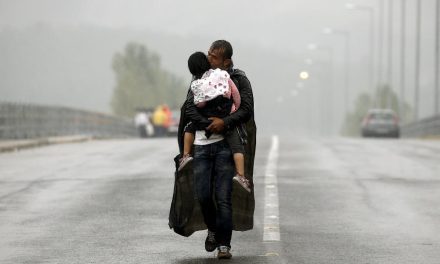Greek renowned author Sophia Nikolaidou’s novel, The Scapegoat (New York, 2015, Translated by Karen Emmerich) takes place during two key periods of recent Greek history: the Civil War in the late 1940s and the current financial crisis.
In the midst of the civil war, an American journalist for CBS, George Polk —journalism’s prestigious George Polk Awards were named after him—, was investigating atrocities on both sides and killed in circumstances that remain unexplained to this day. The police quickly found a scapegoat, a local reporter named Grigoris Staktopoulos, tortured him until he confessed and sentenced him in what has been described as ‘a Soviet show trial’.
The novel’s second central narrative about high school student Minas Georgiou takes place in 2010, in the midst of a financial crisis that has also become a deepening social crisis. Minas’ history and language arts teacher gives him the project of re-examining the Polk case after the boy’s surprising announcement that he’s not going to apply for a place at university, and Minas comes “to realize that justice is an abstract concept…riddled with qualifications, asterisks, interpretations, clashes of opinion”.
Nikolaidou implicitly argues that the injustices of the past are still with us, and that scapegoating of all kinds pervades the current moment – including the current ‘scapegoating’ of Greece by the EU. As Nathaniel Popkin concludes in Cleaver Magazine “The Scapegoat turns out to be an utterly compelling meditation on the nature of political truth, compromise, and justice and at the same time an evocative reflection on generational change”.
Sophia Nikolaidou has published four novels and two collections of short stories, several of which have been translated into eight languages. She currently participates in the International Festival of Authors – IFOA (Toronto, October 22 – November 1, 2015).
Read more: Five Questions with… Sophia Nikolaidou; Karen Emmerich’s Translation Questionnaire; Greece at the Crossroads: The Civil War and Its Legacy (2004)
TAGS: CRISIS | GLOBAL GREEKS | LITERATURE & BOOKS













